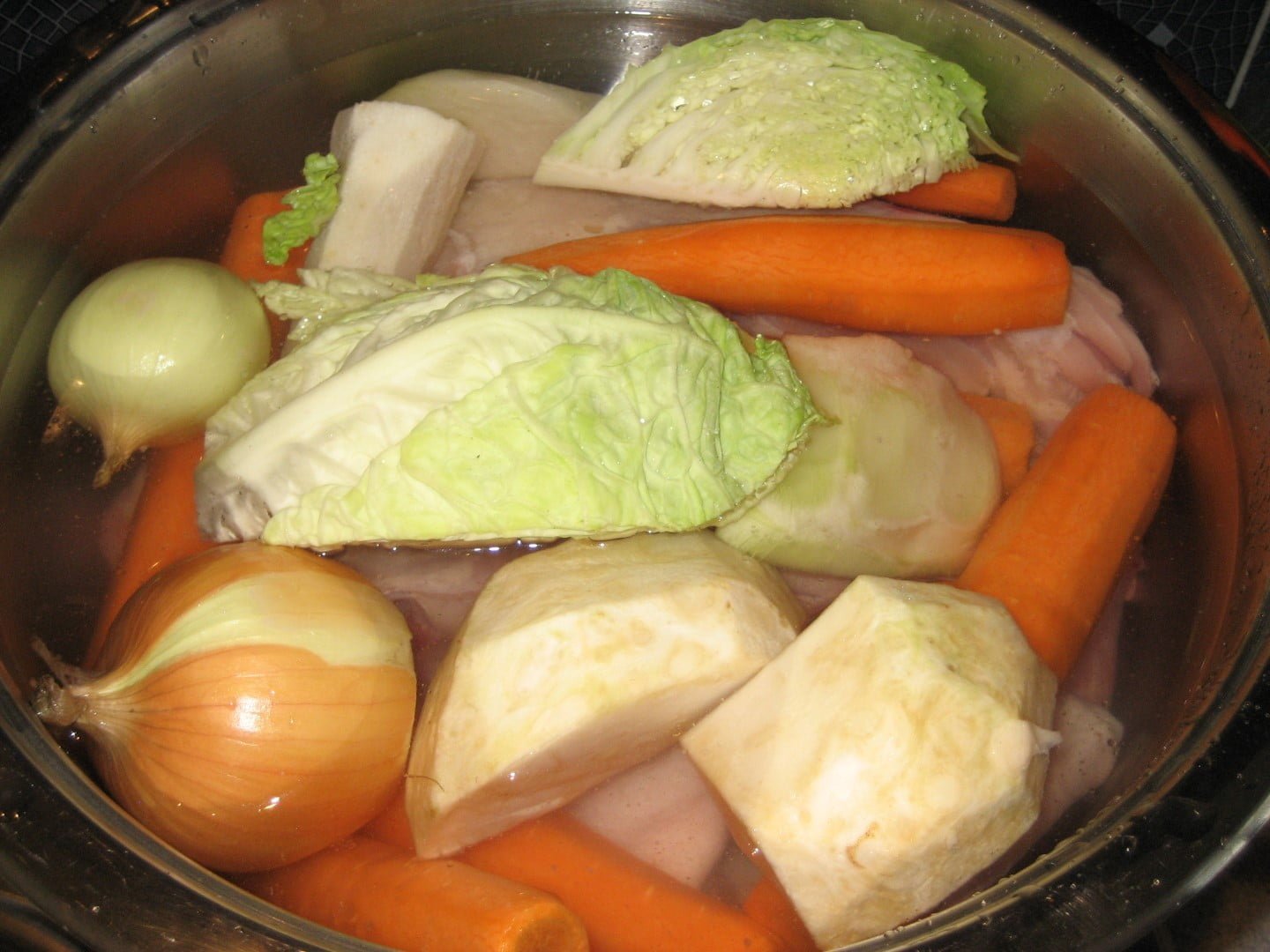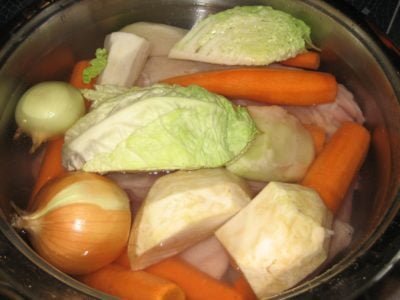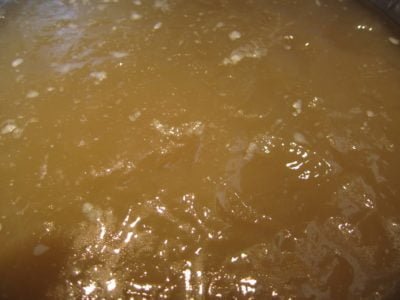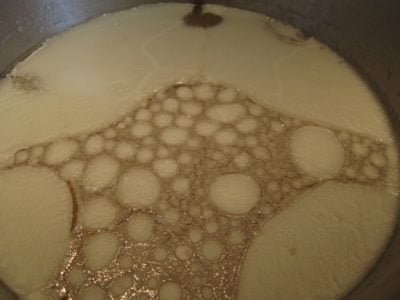Chicken stock is one of the most important base ingredients in cooking. You can use it as a universal flavoring in almost any recipes, as a flavorful liquid instead of water, for making sauces and even as a great natural thickening agent. And last but not least, it’s an essential ingredient for the real, authentic Italian risotto.
When it comes to making chicken stock at home, you can definitely find some pretty fancy recipes. I’m not saying those are wrong. I’m just saying that you shouldn’t spend a couple of days on making something that basic as a stock. If the method I’m sharing with you below has worked for centuries, why wouldn’t it be great for any home cooks in the 21st century?
What Ingredients To Use
When making chicken stock, you can use any kind of vegetables you wish, or what you get fresh at your local market. Carrots and celery are the most common, but you can add some parsnip, onions or even some cabbage leaves.
Interesting fact: in Hungarian cuisine, celery root is much more often used than celery. Thus celery root is a regular ingredient in chicken soup and chicken stick, as you can see in the pictures.
Some people add a few peppercorns or even bay leaves to their chicken stock. French use their famous buquet garni – thyme, bay leaf, parsley and celery leaves rolled in green leek leaves – for making chicken stock even more tastier, but it will work just fine without any spices. I don’t like to add salt here, because then I won’t be able to adjust the salt quantity of my final recipe.
For the chicken part, use fresh bones and leftover parts, or you can even use any leftover from your Sunday chicken roast. But remember, it’s not the meat but the bones that give character to your stock.
How to Remove Fat From Your Chicken Stock
You can use your chicken stock as is, but the fat is still there. To remove it, follow these simple steps.
- Put the chicken stock in the fridge for 8 hours or overnight. The fat will solidify on the top.
- With a spoon or a sieve, remove the fat from the top gently, not discarding the stock.
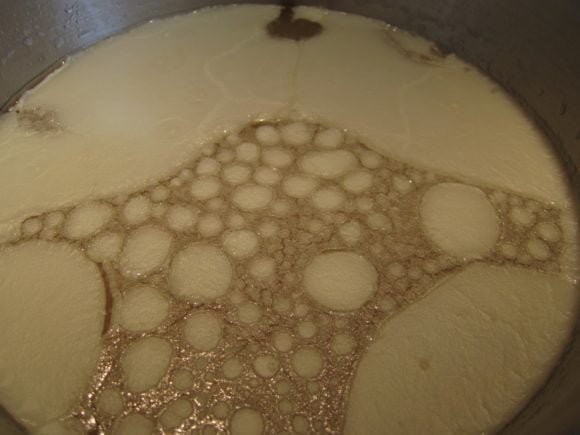
For recipes using chicken stock, click on the link.
How to Store Chicken Stock?
You can use your chicken stock right away, simply using it in any recipes that call for it. Or use it instead of water in some savory recipes to give them more taste. Chicken stock, especially boiled down, is a great thickener in sauces.
You can also store it in the fridge in plastic containers, but use it within a few days. Or stock in the freezer for up to one year.
With a simple trick, you can even make some chicken stock ice cubes, or homemade frozen chicken bouillon cubes, and use them later. Once the fat is removed, put the stock back to boil. Reduce it on low heat to 1/4-1/6 of its original volume. This takes a few hours, but the result is remarkable. You get a very thick, jelly-like substance which is much easier to store. Pour this into regular ice-cube makers and put them in your freezer. Use about one cube for one person.
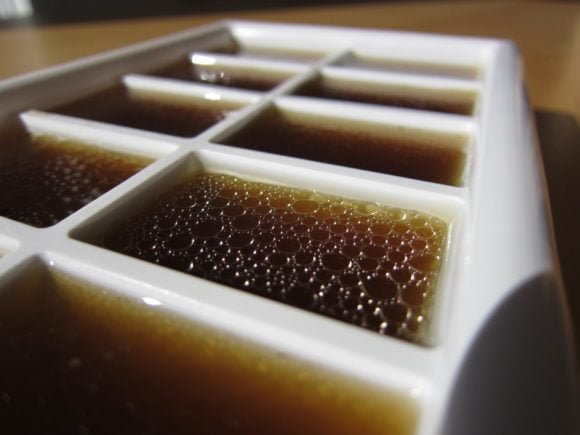
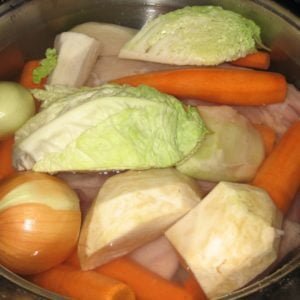
Chicken Stock
Ingredients
- 1½ pounds chicken parts bones, wings, trimmings etc. 750 g
- 1 onion
- 1-2 carrots
- 1-2 celery stalks
Instructions
- Remove the fatty parts and skins and from the chicken bones. Wash and peel the vegetables. Put everything in a cooking pot, add water just to cover everything.

- Bring it to a gentle simmer on medium heat. Once simmering, turn the heat to low and let it cook for at least two hours. The longer you cook it, the more flavors and collagen will dilute into the water making your chicken stock richer and thicker.
- Turn off the heat and let your chicken stock cool. Once it's lukewarm, drain it. Your chicken stock is basically ready.

- Optional: Let it cool in the fridge and skim off the solidified fat from the top.

